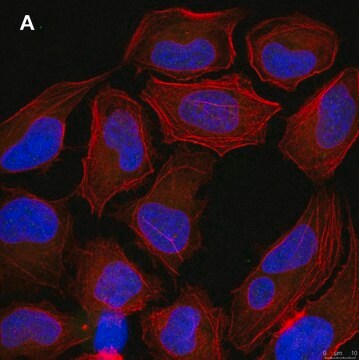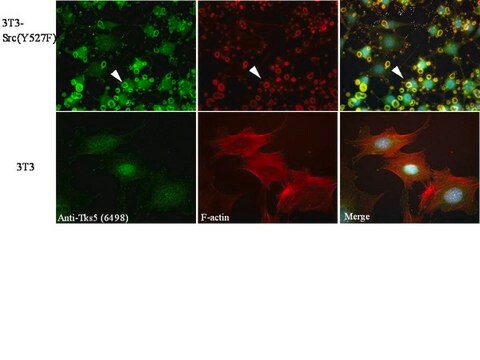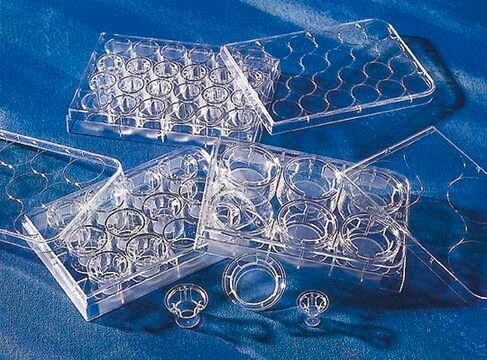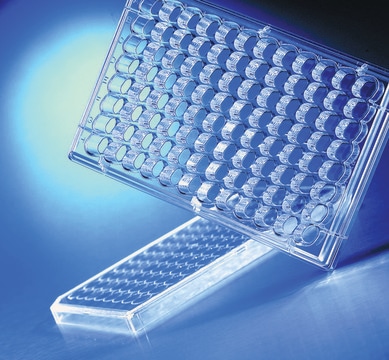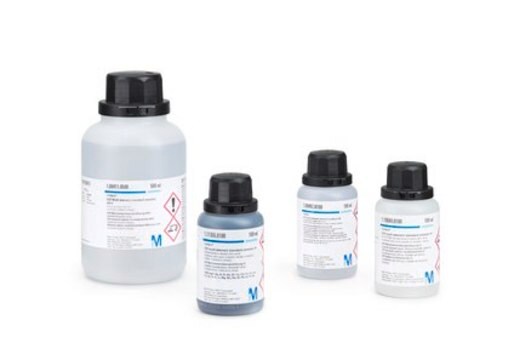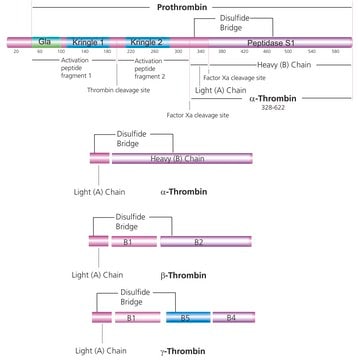Specificità
This rabbit polyclonal antibody specifically detects Parkin. It targets an epitope within 10 amino acids surrounding phosphoserine 65.
Immunogeno
KLH-conjugated linear peptide corresponding to 10 amino acids surrounding phosphoserine 65 from the N-terminal region of human parkin.
Applicazioni
Quality Control TestingEvaluated by Western Blotting in a lysate from a genetically modified proprietary cell line.Western Blotting Analysis (WB): A 1:1,000 dilution of this antibody detected phosphorylated parkin (Ser 65) in a lysate from genetically modified cell line expressing phospho-Parkin (Ser 65).Tested ApplicationWestern Blotting Analysis: A 1:1,000 dilution from a representative lot detected phospho-Parkin (Ser65) in A431, C2C12, Hek293, and Hela cell lysates.Affinity Binding Assay: A representative lot of this antibody bound phospho-Parkin (Ser65) peptide with a KD of 1.0 x 10-12 in an affinity binding assay.Peptide Inhibition Analysis: A 1:1,000 dilution from a representative lot was used with Phosphorylated Parkin Ser65 lysate for peptide block analysis.Note: Actual optimal working dilutions must be determined by end user as specimens, and experimental conditions may vary with the end user
Anti-phospho-Parkin (Ser65), Cat. No. ABN2244, is a rabbit polyclonal antibody that detects E3 ubiquitin-protein ligase parkin and is tested for use in is tested for use in Affinity Binding Assay, Peptide Inhibition Assay, and Western Blotting.
Descrizione del bersaglio
E3 ubiquitin-protein ligase parkin (UniProt: O60260; also known as EC:2.3.2.31, Parkin, Parkin RBR E3 ubiquitin-protein ligase, Parkinson juvenile disease protein 2, Parkinson disease protein 2) is encoded by the PRKN (also known as PARK2) gene (Gene ID: 5071) in human. Parkin is mainly localized in the cytosol but relocates to dysfunctional mitochondria that have lost the mitochondrial membrane potential. Its mitochondrial recruitment is shown to be PINK1-dependent. Parkin functions within a multiprotein E3 ubiquitin ligase complex, catalyzing the covalent attachment of ubiquitin moieties onto various substrate proteins. It mediates monoubiquitination as well as polyubiquitination of substrates. It participates in the removal and/or detoxification of abnormally folded or damaged protein by mediating lysine 63-linked polyubiquitination of misfolded proteins. Parkin is also reported to mediate monoubiquitination of Bcl2 and acts as a positive regulator of autophagy and promotes the autophagic degradation of dysfunctional depolarized mitochondria by promoting the ubiquitination of TOMM20, RHOT1/MIRO1 and USP30. In its autoinhibited state the side chain of phenylalanine 463 inserts into a hydrophobic groove in RING-0 that occludes the ubiquitin acceptor site Cys-431. Its activation is a two-step process that involves serine 65 phosphorylation by PINK1 and binding to phosphorylated ubiquitin that leads to unlock repression of the catalytic Cys-431 by the RING-0 region via an allosteric mechanism and converting PRKN to its fully active form. Mutations in PRKN gene are known to cause Parkinson disease characterized by bradykinesia, resting tremor, muscular rigidity and postural instability.
Stato fisico
Purified rabbit polyclonal antibody in buffer containing 0.1 M Tris-Glycine (pH 7.4), 150 mM NaCl with 0.05% sodium azide.
Stoccaggio e stabilità
Stable for 1 year at +2°C to +8°C from date of receipt.
Altre note
Concentration: Please refer to the Certificate of Analysis for the lot-specific concentration.
Esclusione di responsabilità
Unless otherwise stated in our catalog or other company documentation accompanying the product(s), our products are intended for research use only and are not to be used for any other purpose, which includes but is not limited to, unauthorized commercial uses, in vitro diagnostic uses, ex vivo or in vivo therapeutic uses or any type of consumption or application to humans or animals.
